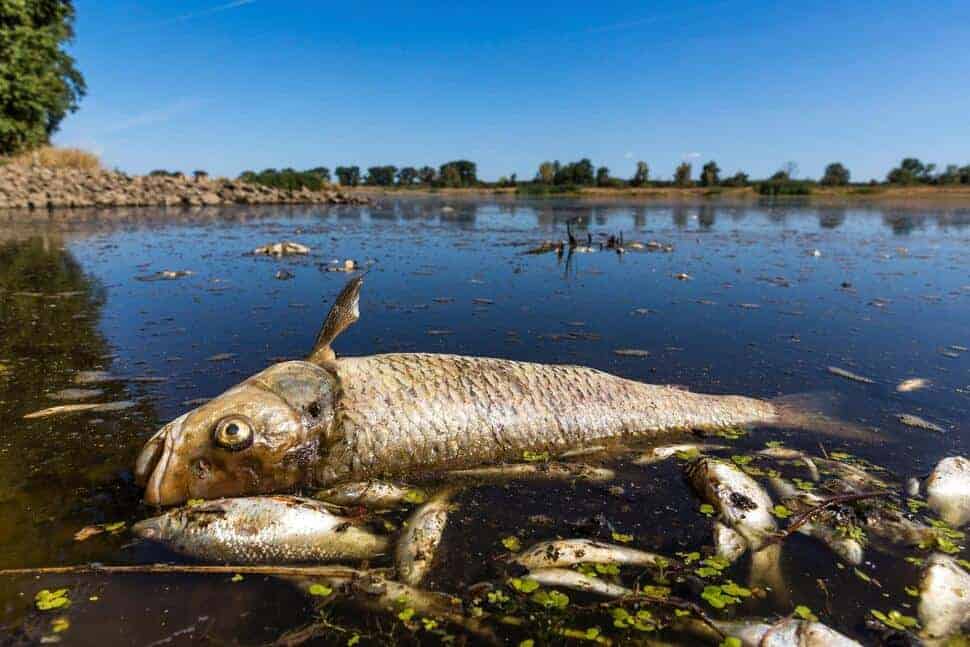Greenpeace environmental group says that wastewater discharge from Poland’s coal mines was most likely responsible for the 2022 massive fish die-off in the Oder River
WARSAW, Poland — Greenpeace environmental group said Thursday that wastewater discharge from Poland’s coal mines was most likely responsible for the 2022 massive fish die-off in the Oder River.
Greenpeace Poland also warned that the situation may reoccur this year and also hit Poland’s largest river, the Vistula, if the government and the coalmining industry don’t take immediate steps to counter the problem. The fish die-out was blamed on deadly type of algae, Prymnesium parvum, that thrives in highly salty water and in hot temperatures.
The group presented results from their salinity levels tests in the Oder and Vistula Rivers that showed that the levels shot up, sometimes off the scale, after the rivers’ waters travel through Poland’s southern coalmining region of Silesia.
“Our hypothesis is that the source of the high salinity levels are most probably brine waters pumped from Upper Silesia into the Oder and the Vistula,” said the author of the tests and a Greenpeace expert, Leszek Pazderski of Nicolaus Copernicus University in Torun.
Greenpeace warned that this situation may result again in the deaths of hundreds of tons of fish if nothing is done. The group called on the government to establish a national park reserve on parts of the Oder to protect it from industrial contamination and to introduce much more restrictive discharge regulations. Greenpeace also indicated that the mining industry should invest in proper filtering of its wastewater.
Poland’s government insisted last year that all regulations had been observed and blamed the disaster on natural causes like high temperatures and drought, which drastically brought river water levels down, further increasing salination.
An analysis by European Union experts published last month said that the disaster was at least partly due to the discharge of industrial wastewater with high salt content, like in the case of coal mining.
The analysis said the die-out in the Oder last July and August was one of the “largest ecological disasters in recent European river history.”

